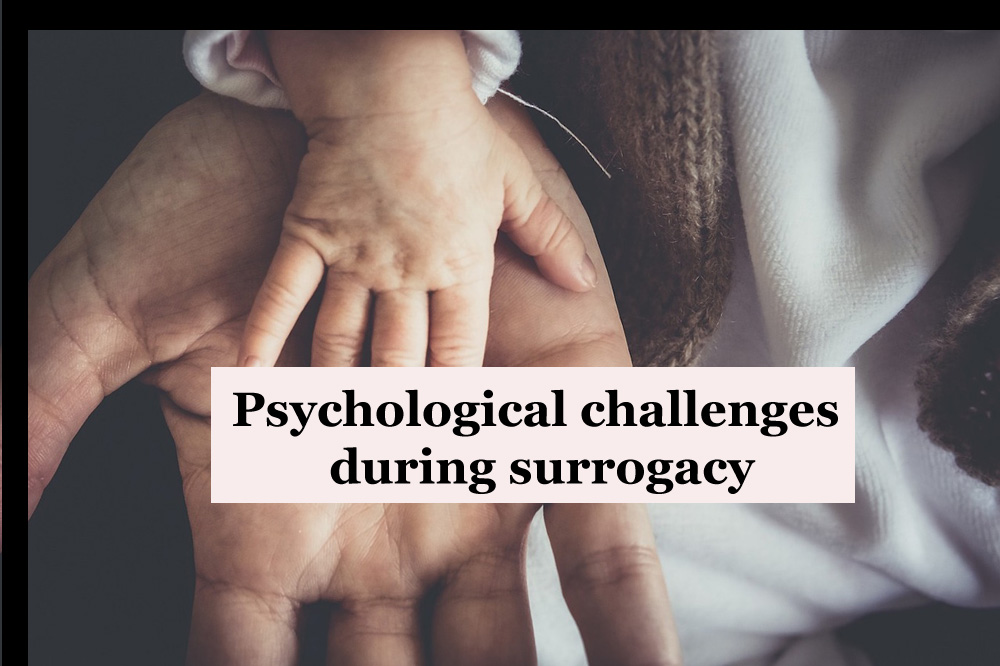The Psychological Impact of Surrogacy on Intended Parents
For many people who want to have a family but find difficulty with normal conception, surrogacy is surely a transforming path. Surrogacy, still, can create a rollercoaster of emotions even when it offers hope and delight. On the other side, the emotional impact on intended parents—those who manage surrogacy—is somewhat different and noteworthy. Sometimes all at once, this process is one of excitement, stress, fear, and great emotional connections.
This post explores the psychological experience of intended parents undergoing surrogacy—what feelings they go through, the mental challenges they encounter, and how they negotiate this path.
The psychological impact of surrogacy on intended parents
1. Hope and Thrills: Starting the Road
For most intended parents, the start of the surrogacy process excites and hopes abound. Whether they have health issues, struggle with infertility, or are same-sex couples unable to conceive naturally, surrogacy provides an opportunity to realise their dreams for a child.
Also, intended parents typically experience a fresh feeling of possibilities from the minute the procedure begins. Holding their infant in their arms seems more realistic than it did years ago. Their excitement at becoming parents drives them forward, and the idea that this might at last be the answer to their problems gives them hope.
2. Anxiety about the Future
Though they are excited, intended parents sometimes struggle with anxiety—that of the unknown, that of the surrogacy procedure, that of things gone wrong. Finding the right surrogate, guaranteeing legal safeguards, handling finances, and—above all—hoping for a successful pregnancy include so many different moving elements in surrogacy.
Since intended parents have little control over the pregnancy, they could be concerned about whether the surrogate would go through a seamless experience or whether problems would develop. For those who have already gone through failed reproductive treatments or miscarriages in particular, this sense of powerlessness can cause worry. Although doctors are managing the procedure, intending parents naturally get anxious about the result.
3. Relationship Building and Trust with the Surrogate
Developing trust with the surrogate represents one of the most important emotional challenges in surrogacy. Early on, this can be difficult for the intended parents. After all, they are depending greatly on someone else to carry their child.
This approach calls much for emotional transparency. A good surrogacy journey depends on the intended parents developing a relationship with the surrogate. Geographical distance, cultural variances, or simply the inherent awkwardness of depending on someone else to conceive their child into the world can all complicate the bond.
Some intended parents worry that their relationship will seem transactional or that they won’t get along with the surrogate. Many, though, find that this initial anxiety gives way to great thanks and a special, perhaps lifetime relationship with the surrogate.
4. Experiencing Pregnancy like an Outsider
The sensation of being cut off from the pregnancy is a typical psychological obstacle for potential parents. They could feel excluded from significant events like the baby’s first movement or scheduled ultrasounds since they aren’t the ones physically carrying the child.
Though intended parents are emotionally engaged, there might be a residual sense of isolation from the real pregnancy experience. For women who, for medical or personal reasons are unable to carry a pregnancy themselves, this can be very difficult. Even as they fervently hope to be moms, many intended mothers battle shame, grief, or frustration about their inability to personally experience pregnancy.
Male same-sex couples may have comparable feelings but also may face social pressure about conventional gender roles and parenting expectations.
5. Controlling Emotional Ups and Downs
From start to end, the surrogacy process is seldom like sailing straight. From the first thrill of finding a surrogate to the anxiety of legal paperwork, medical procedures, and waiting for the pregnancy to develop, it is rife with emotional highs and lows.
One minute, intended parents feel happy; then, they could experience emotional whiplash—one moment, then they become concerned about problems. That said, anxious about your future family, nine months might seem like a lifetime. One also worries about things like miscarriage, which although rare nonetheless occurs.
Sometimes parents may even have some “survivor’s guilt” if their surrogacy journey goes without any issues while others around them are still in crisis.
6. Managing Stigma and Judgment
Surrogacy is nevertheless subject to certain societal stigma even if it is growingly acceptable all around. Whether it’s family, friends, or society at large, intended parents could find others evaluating them. Some people still see surrogacy as an unusual or “unnatural” approach to having a family, so prospective parents may find great weight in this opinion.
Another issue would be how best to inform their future child of surrogacy. Being born via a surrogate will make the child unique. Regarding enquiries on the surrogacy process from others or from their own child, how would the intended parents respond? These are real issues that can cause future anxiety.
7. Happiness and bonding following Birth
The emotional reward at the end of the surrogacy process is enormous despite the challenges. Moreover, the moment intended parents hold their baby in their arms is unboundedly joyful. Their family is whole following months or perhaps years of expectation.
Many prospective parents find that any sense of anxiety or exclusion they experience during the pregnancy fades fast once the baby shows up. Whatever the method of delivery, the link between parents and their children is just as strong. Often surpassing their expectations are the love and attachment intending parents experience towards their newborn.
8. Emotions and Adjustments after Child-Birth
It is noteworthy that the emotional journey does not stop upon the birth of the child. For intended parents as well, postpartum feelings are real. There can be times of worry, tiredness, and even post-surrogacy sadness even if overall contentment is great.
Even while they are connecting with their new child, some intended mothers—especially those who cannot carry the pregnancy themselves—may experience loss or grief. For others, the change to parenting can be daunting given all the typical difficulties of raising an infant.
9. Getting Emotional Support during the journey
With the psychological challenges intended parents experience throughout surrogacy, emotional support is absolutely essential. Speaking with others who have gone through the surrogacy process helps many intended parents find solace. Moreover, intended parents can post their experiences, worries, and victories on many web communities, forums, and support groups.
To help them negotiate the emotional swings of surrogacy, some intended parents also go to professional counseling. Expert in surrogacy, family-building, or infertility, a therapist can provide insightful analysis and coping mechanisms.
Final words
Intended parents on the emotional journey related to surrogacy will experience a spectrum of emotions—hope, anxiety, delight, and all points between. Though the psychological impact might be strong, the eventual benefit of having a much-longed-for kid in their arms makes it all worthwhile. Intended parents can negotiate the ups and downs of surrogacy and come out on the other side with a great sense of love and fulfilment by realizing and resolving their emotions, obtaining support, and forging close relationships with their surrogates.
Ultimately, even if surrogacy presents challenges, it’s a path that results in the evolution of families—a path with emotional complexity but great gratification.




